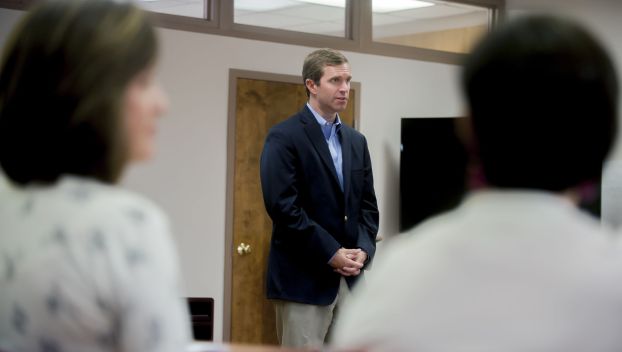
News
Beshear discusses ‘big pharma,’ pension with health department officials
Kentucky Attorney General and Democratic gubernatorial candidate Andy Beshear and Rep. Patti Minter, D-Bowling Green, toured the Barren ... Read more

Kentucky Attorney General and Democratic gubernatorial candidate Andy Beshear and Rep. Patti Minter, D-Bowling Green, toured the Barren ... Read more